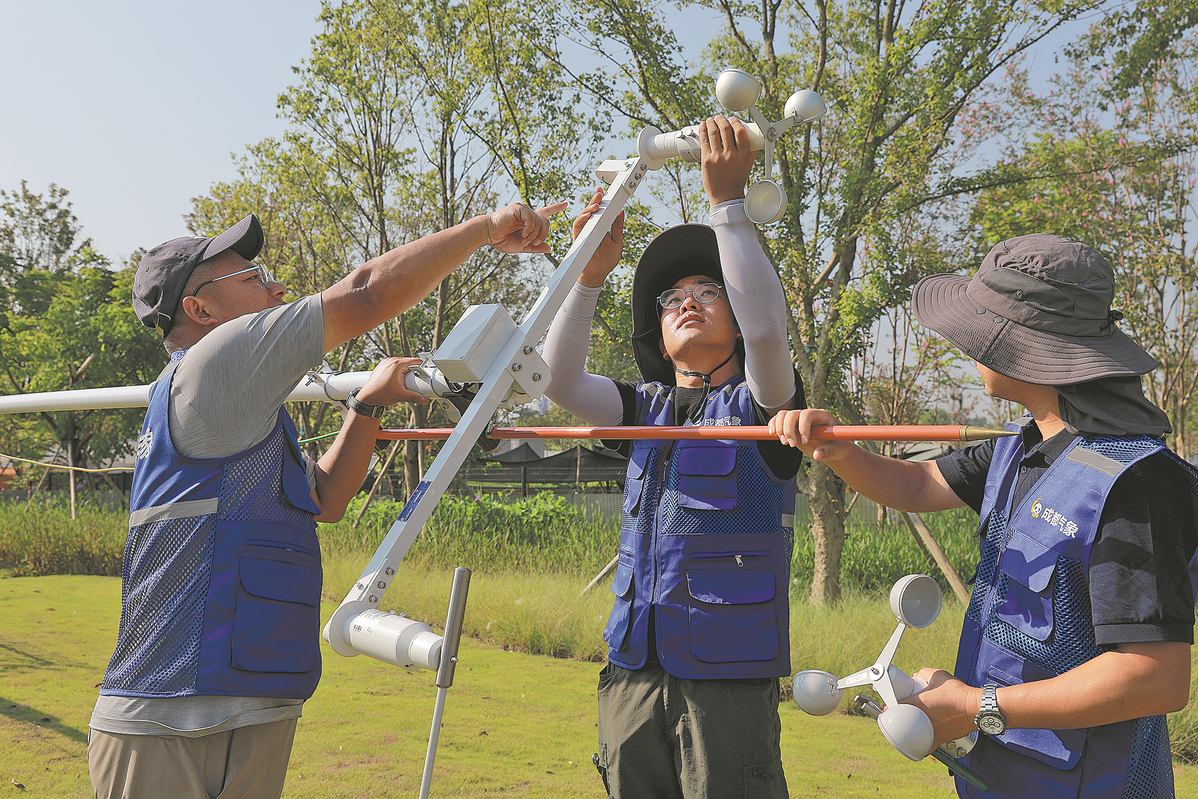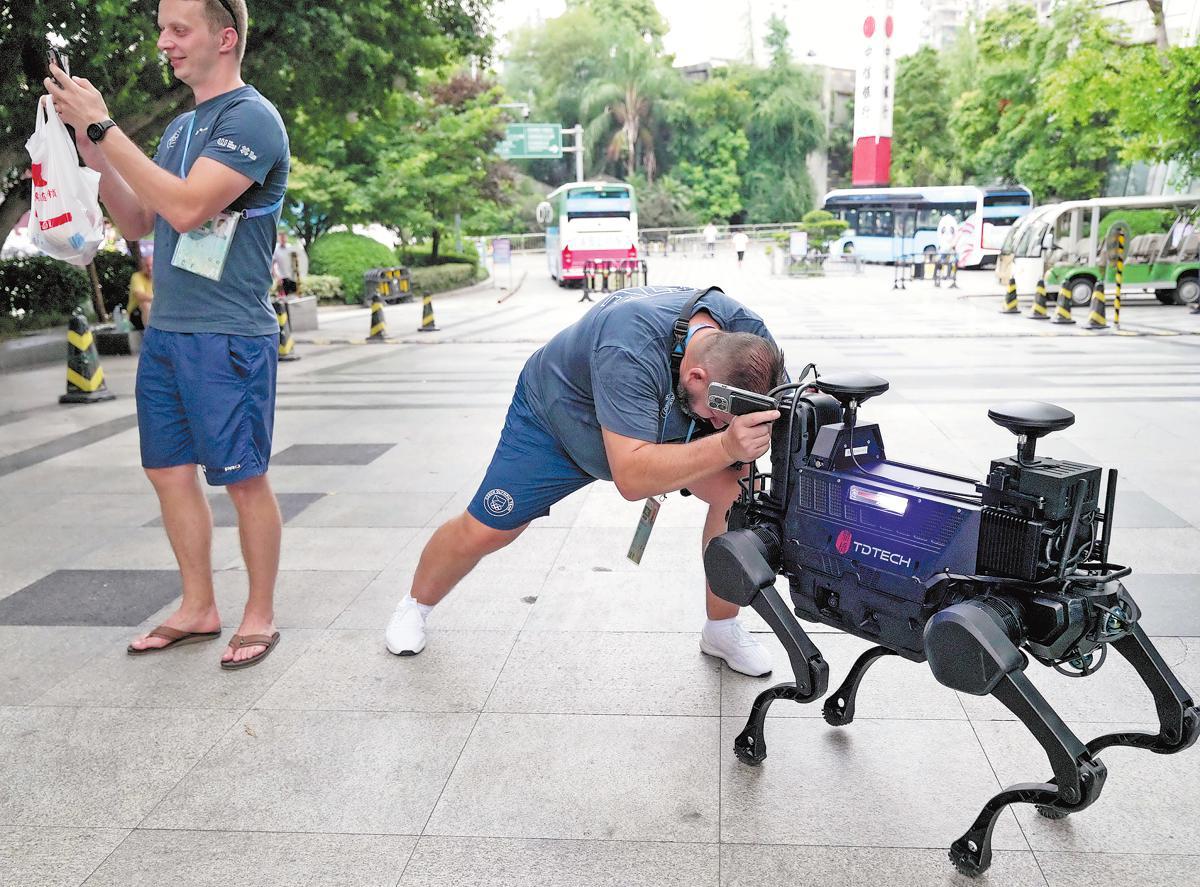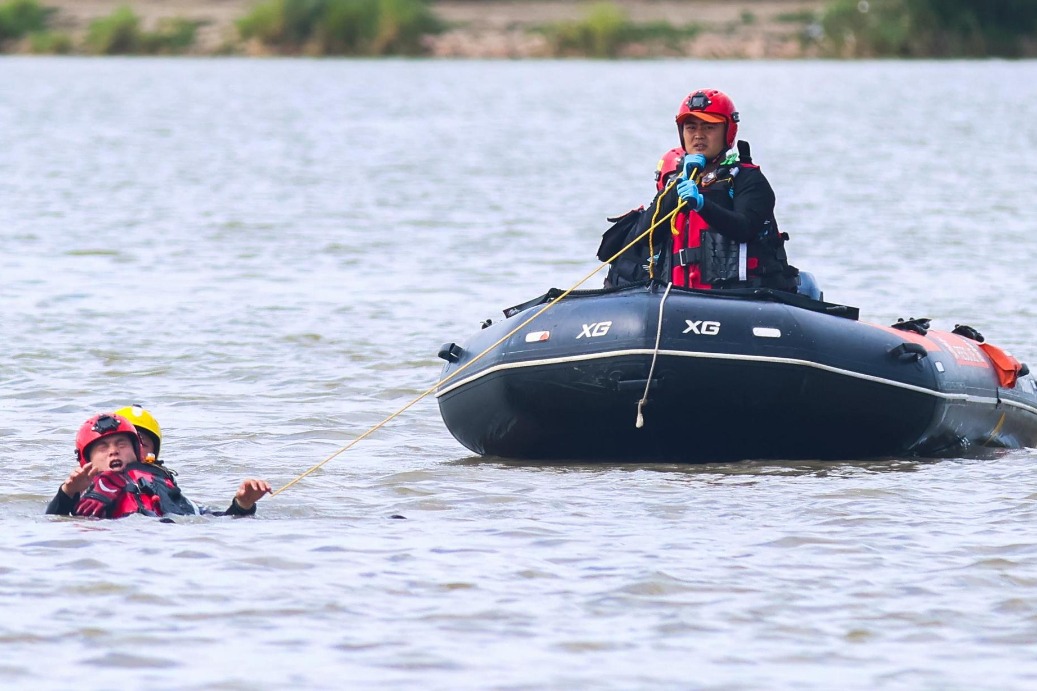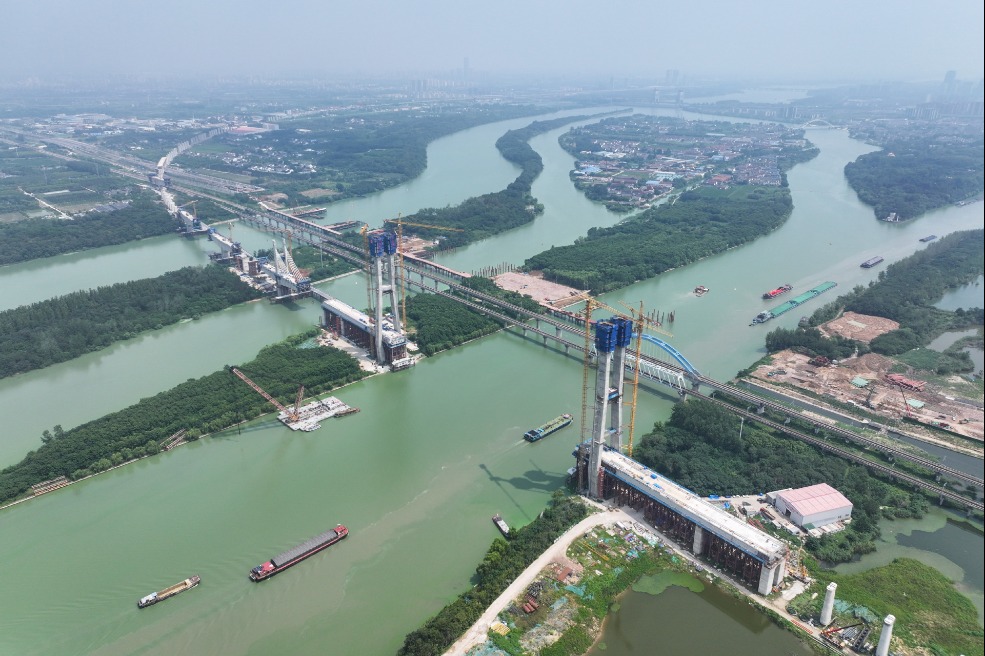Worried over possible weather woes, workers at World Games strategize


On a humid summer night in Chengdu, Zhang Tao stared at a glowing weather monitoring system inside the Chengdu Municipal Meteorological Department. The deputy director looked anxious.
In just 24 hours, the opening ceremony of the 2025 Chengdu World Games is scheduled to be held outdoors at the Tianfu International Convention Center. But the forecast is far from ideal.
As of 8 pm Wednesday, meteorologists were predicting partly cloudy skies with scattered showers or thunderstorms during the Thursday evening festivities. Daytime highs could reach as high as 33 C, but the key window from 6 to 10 pm — covering the torch lighting and fireworks segments of the ceremony — is likely to face a threat of rain.
"We're under a lot of pressure," Zhang said. The uncertainty threatens to derail the outdoor elements of the ceremony, and organizers are on standby to activate an indoor contingency plan if needed, he added.
While northern and southern China are battling heavy rainfall during the flood season, the Sichuan Basin is bracing for an intense heat wave, with temperatures exceeding 40 C in some areas.
Adding to the challenge, Chengdu is known for its local microclimates, which complicates weather forecasting for citywide sporting events, said Li Linlin, deputy director of the Games' services support center.
To tackle the uncertainty, Chengdu has rolled out a high-tech weather monitoring system aimed at ensuring smooth operations.
The network includes 855 ground stations, nine advanced radar systems, 13 upper-air sites and real-time satellite data — providing minute-by-minute, high-resolution forecasts across all venues, according to the meteorological department.
With 15 outdoor venues spread across Chengdu's urban and suburban districts, meteorologists are providing hyper-local forecasts to support the complex web of competitions.
"Organizers have installed 26 new localized weather stations in addition to the 61 built for the 2023 Chengdu Universiade," Li said.
The stations enhance precise forecasting down to individual venues — many of which have open-air surfaces highly sensitive to weather changes.
Artificial intelligence-powered models can now offer forecasts ranging from 60 days ahead to just five minutes out, helping predict rain, wind, heat and air quality to protect athletes and minimize delays.

Among the most weather-vulnerable sports is drone racing — a high-octane event blending speed and virtual reality. Scheduled for Aug 14 to 16 at the Dong'an Lake Sports Park athletics field, the race pushes agile drones through obstacle-laden tracks at speeds topping 160 kilometers per hour.
"Wind is a critical factor," said Zhou Xueyun, a member of the Games' meteorological center. "A gust over 32.4 km per hour may throw a drone off course or cause a crash."
Rain, he added, could short-circuit electronics or significantly reduce flight speed.
Ideal flying conditions include low wind, visibility over 1 km and moderate humidity.
"Anything outside those parameters could ground the event," Zhou said.
To mitigate the risks, high-resolution numerical weather prediction tools have been deployed to map low-altitude turbulence and wind fields in real time.
"Flying disc is another sport requiring strict weather conditions," Zhou said. Frisbee flight is easily disrupted by winds above 28.8 km per hour, and athletes perform best in 15 C to 25 C temperatures with moderate humidity. Mobile weather stations have been placed near the lake to deliver second-by-second data on wind and visibility.
At the Sancha Lake Water Sports Competition Zone, thunderstorms are the biggest threat to events such as powerboating and waterski.
"If there's lightning, everything stops immediately," said Gao Deng, deputy head of the venue operation center's competition committee. "Athletes are vulnerable on open water. We have emergency tents and shelters ready for immediate evacuation."
He said the team has rehearsed for extreme weather scenarios ahead of the Games.
Gao said updated hourly forecasts and rolling three-day outlooks are sent to the Global Association of International Sports Federations to help guide decisions about potential delays or rescheduling.
Beyond the playing field, weather can also impact a wide range of support services. High temperatures raise the risk of heatstroke among spectators and workers, while heavy rain can disrupt electrical systems and interfere with live media broadcasts, Li said.
"Weather should not stand in the way of athletic achievement," he said. "Our job is to make sure it never catches us unprepared."





































